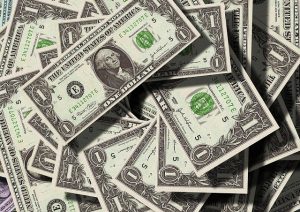 For thousands of years, hardship, hunger, disease, poverty, violence, and war have shaped people’s lives. It was only during the Enlightenment that freedom of thought, literacy and letterpress printing led to a technological and political progress tsunami that markedly improved the living situation of a large part of humanity despite the population explosion, for example by overcoming plagues such as plague or smallpox, the almost incredible decrease in maternal and child mortality, the sharp rise in life expectancy in good health, the decrease in violence against people, social security in old age and in the event of illness or the victory over hunger.
For thousands of years, hardship, hunger, disease, poverty, violence, and war have shaped people’s lives. It was only during the Enlightenment that freedom of thought, literacy and letterpress printing led to a technological and political progress tsunami that markedly improved the living situation of a large part of humanity despite the population explosion, for example by overcoming plagues such as plague or smallpox, the almost incredible decrease in maternal and child mortality, the sharp rise in life expectancy in good health, the decrease in violence against people, social security in old age and in the event of illness or the victory over hunger.
Money politics: A long shadow on the ‘beacon’ of democracy
But none of this would have been possible without a much older invention: that of money. Only money as an abstract unit of measurement, with which goods, services, and risks can be valued, enabled the market economy based on the division of labor with the associated potential to create prosperity for everyone. However, the money economy always bore the seeds of a crisis. Whenever politics tried to contain human weaknesses such as greed, exuberance or illusions through regulation, such weaknesses found new loopholes to unfold. But that shouldn’t hide the enormous benefits of the money economy for mankind.
Money had made things possible for people. People work for money to meet their daily needs. With freedom related to democracy, people are able to receive money equivalent to the work they put. But sometimes, that’s not always the case. Regardless of hard work, money is never enough to suffice hardship and crisis. In this case, people run to banks and financial institutions (https://moneylendingclub.com/) for financial help.
The Function Of The Financial Markets
One can distinguish three core functions of the financial markets. First, contracts can be used to reassign economic values and postpone them over time. With the mortgage, for example, the bank finances the construction of a home, in return, the homeowner promises to pay interest and repayments. Conversely, a worker can receive a monthly pension in return for one-off or periodic payments up to the end of his life. Secondly, risks can be redistributed by a party that is better able to take risks to take over such risks from another party for a fee. This is the case with insurance companies, for example. Third, financial markets can pool capital and use it to create wealth. Thanks to savings deposits, banks grant loans for economic activity. Exchanges allow companies to receive money from investors. States collect tax dollars from small people to finance large projects. This gives investors the opportunity to use their savings productively and to be compensated for the associated risk.
It was only the financial markets that enabled the creation of the welfare state, one of the most impressive achievements of the people, by incorporating certain redistribution mechanisms. It solves the problem of fear of the uncertainty of the future, it ensures a sufficiently dignified life in old age, it alleviates the hardships of unemployment, it provides good medical care in the event of illness, and it also gives people with disabilities a perspective. Of course, the welfare state also provides incentives that influence people’s behavior, such as the willingness to perform, personal responsibility, propensity to save, risk behavior, the choice of when to retire or family structures. Politicians have to consider all this.
The only government model that has so far produced successful welfare states is the combination of democracy, the rule of law and a market economy. However, there are four political laws that, if institutional and cultural antidotes are not always found, endanger the success of this model. I call them the principles of courtesy democracy: politics seeks, firstly, always the path of minimal effort. Second, the attraction of favors that others pay is irresistible. Thirdly, even the most absurd political action finds its plausible justification, and fourthly, the “this time is different” syndrome works.


